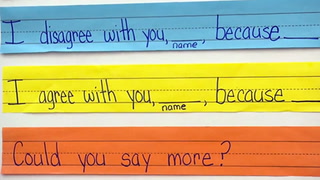While Game to Grow’s game-based groups are sometimes called “social skills groups,” the purpose isn’t actually to teach social skills.
Why?
Because we’re aiming for something much more important.
Often, social skills “training” programs focus on deficits, viewing neurodivergent participants as needing to be fixed, adjusted, or helped to fit into the world of the neuromajority. Many well-intentioned programs aiming to support the social development of neurodivergent individuals are actually encouraging participants to “mask” or “camouflage”. The result of this pressure to “pass” as neurotypical can often be an internalized sense of “otherness:” a belief that they don’t fit into a world that was not made by them or built for them.

By the time many participants first join Game to Grow groups, they have attended script-based social skills training programs focused on external rewards. These kinds of exchanges—using the correct words in the correct order to get a treat—don’t actually translate to real-world social success. Many graduates from such programs continue to struggle to build friendships because the programs themselves don’t support or reinforce actual relationships. Not to mention the fact that the real social world outside of these programs is messy and rarely consistent with “the rules!”
At Game to Grow, we honor and respect the neurodiversity of our participants. While we acknowledge that the world is driven by a neuromajority, we focus our work on building the social confidence to connect with others as much as and in the ways that participants desire. We aim to replace what are often shame-based behavior modification strategies with a kind of cultural competence that helps them meaningfully connect with the world around them and to flourish socially on their own terms.

That’s our goal: Social flourishing.
Does this mean that sentence frames are always harmful and dehumanizing? Absolutely not!

Sentence frames can be a fantastic support to help individuals—neurotypical and neurodivergent—meet their needs. They can help with conflict resolution, interpersonal effectiveness, and help smooth out many other bumpy interpersonal situations.
What about rewards? Are they always coercive tools in disguise? No!
Whenever someone doesn’t want to do something, be it because of general dislike, fear, anxiety, or any other reason, it certainly helps to have something extra to make it a little easier. A spoonful of sugar does help the medicine go down, after all.

The trouble with sentence frames and external rewards is that when they become the entire focus they ignore the life-affirming power of authentic human connection.
So how does Game to Grow help participants flourish socially on their own terms?
We leverage the power of play for play’s sake to provide a safe and supportive environment in which participants can connect with others with similar interests. While playing role-playing games like Dungeons and Dragons, Minecraft, or other naturally rewarding social games, participants are guided by a facilitator to build their Core Capacities of Regulation, Collaboration, Planning, Perspective, and Pretend Play.

These are the building blocks of social confidence and the stones in the path to social flourishing.
As one participant’s parent said:
“My son has grown in confidence, has an increased willingness to try new things and has a more positive outlook on life!”
Interested in joining a game-based social skills social flourishing group? See more about our group offerings here.
Interested in learning more about the Game to Grow Method so you can support your own community’s social flourishing? Click here to learn more about our comprehensive training program.
